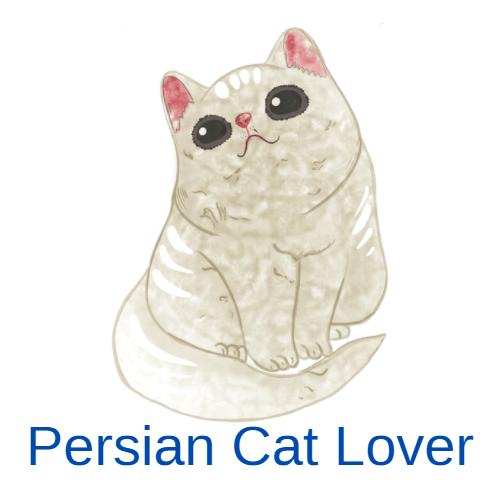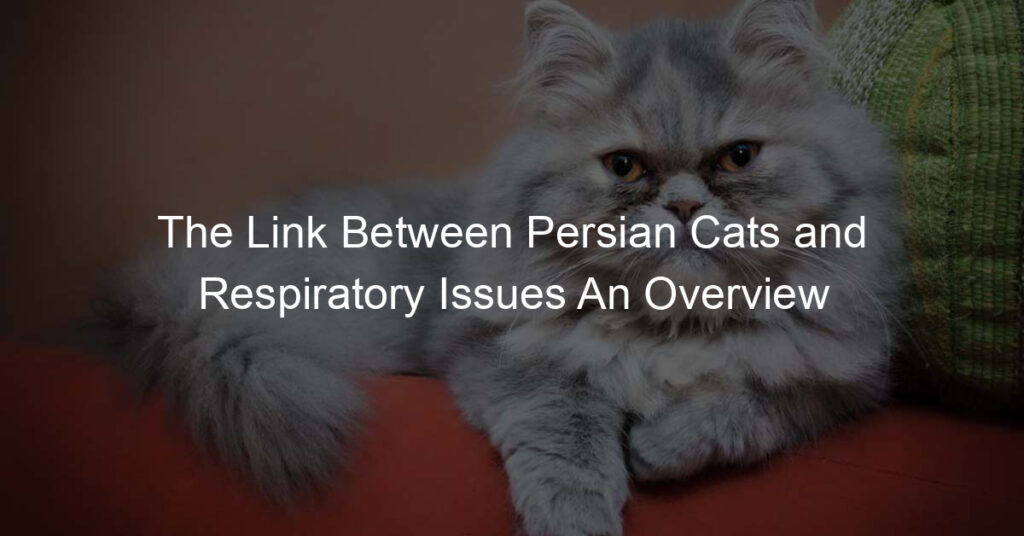Persian cats are very laid-back and gentle creatures, so they rarely display any destructive behavior. They do not use scratching furniture, clawing carpets, or other forms of destruction that some cats may exhibit.
Persian cats also tend to be much more independent than other breeds and, therefore, less likely to misbehave out of boredom or attention seeking.
Instead, the most common behavior issues associated with Persian cats are related to their grooming needs, as they require daily brushing and combing to keep their long coats free from tangles and mats.
Additionally, Persians can become easily stressed if not handled properly, which can lead to inappropriate urination or defecation in unacceptable areas. Therefore, owners of these cats must be familiar with their needs and provide them with a safe, consistent environment.
With proper care, Persian cats make loving and loyal companions who rarely exhibit destructive behavior.
How Can I Prevent My Persian Cat From Being Destructive?
The best way to prevent your Persian cat from engaging in destructive behavior is to ensure that its physical and emotional needs are being met.
This includes providing a safe, comfortable environment with plenty of toys and activities to keep them entertained, as well as regular brushing and combing of their long fur.
Further, spending quality time with your Persian cat when they’re not napping or grooming themselves is essential, as this will help build trust between the two of you.
Lastly, if your Persian cat does exhibit any destructive behavior, it’s important to address the issue calmly instead of punishing them. Understanding the root cause behind their behavior and working towards resolving it can help keep your Persian cat happy and healthy for many years to come.
Do Persian Cats Ruin Furniture?
Persian cats are often known for their playful and affectionate nature, but many people worry that they might cause damage to furniture.
Fortunately, Persian cats will rarely ruin furniture if kept indoors and given proper care and attention. With regular grooming to keep their fur in good condition and plenty of toys to keep them entertained, these cats are unlikely to try scratching your furniture or carpets.
However, it’s important to remember that cats have an instinctual urge to scratch, so providing a suitable scratching post can help prevent unwanted behavior.
Regularly trimming your cat’s claws can reduce the likelihood of damage caused by scratching. Overall, Persian cats are not likely to ruin your furniture as long as they have plenty of activities and a safe, comfortable space to call home.
Keeping up with regular grooming and providing the right toys and scratching posts will also help ensure your furniture stays safe from harm.
Are Persian Cats Short-Tempered?
No, Persian cats are generally not short-tempered. They are pretty docile and easygoing.
Persian cats are known for their gentle and affectionate personalities; they tend to be quiet, loyal companions who love to cuddle and snuggle with their owners.
They may take a little while to warm up to strangers or new environments, but overall they do not show aggressive behavior or tendencies.
It is vital to provide socialization opportunities early on so that your Persian cat can become comfortable with unfamiliar people or pets in the home.
A well-socialized Persian cat should have no trouble adjusting to different situations and getting along with other animals. A good owner will also ensure that their pet’s needs are met, including proper nutrition, exercise, and mental stimulation.
Although there are exceptions to every rule, Persian cats generally have sweet temperaments that make them enjoyable and loving companions.
If you take time to socialize your pet from an early age properly, you will likely find that they are gentle and loving cats who thrive on affection from their owners.
They may not be as outgoing or active as some other breeds of cats, but when it comes to personality, Persian cats can make great pets for those looking for a loyal companion.
Persian cats have been beloved pets for centuries, and it’s easy to see why! Their calm temperaments and gentle natures make great companions who will return your love with cuddles and purrs.
If you can provide a safe, loving home for one of these beautiful creatures, you will surely be rewarded with years of unending affection and loyalty. A Persian cat is genuinely a special pet that can bring joy into any household.
What Is the Best Way To Manage a Short-Tempered Persian Cat?
The best way to manage a short-tempered Persian cat is to establish clear boundaries and give them lots of physical and mental stimulation.
Set up specific spaces for sleeping, eating, playing, and littering. Establish clear rules that they must follow and give positive reinforcement when they obey the rules.
Provide plenty of toys, playtime, and affection, so they don’t feel ignored or neglected. When they act out, give them stern verbal reprimands but don’t yell or hit them.
Ensure you provide consistent discipline so your pet knows what behavior is acceptable and what isn’t. Also, make sure to monitor their diet closely, as some foods can cause cats to become more excitable than usual.
Finally, if behavioral problems persist, it’s best to consult with a veterinarian or animal behaviorist so that you can get your Persian cat back on the right track.
Can Persian Cats Be Aggressive?
Persian cats can be aggressive, but this behavior is not typical of the breed. The most common causes of aggression in cats are fear and frustration. If a Persian cat feels threatened or stressed, it may become aggressive to protect itself.
Further, if a Persian cat is bored or not getting enough exercise or mental stimulation, it may act aggressively. Therefore, owners should ensure their Persians have plenty of safe areas to explore and activities to keep them entertained to prevent aggression.
They should also provide lots of love and attention, so their pet feels secure in its environment. If an owner notices any signs of aggression from their pet, they should contact a veterinarian immediately to help resolve the issue.
In general, Persian cats are known for their calm temperaments and loving natures. With proper care and socialization, these cats can make wonderful companions who bring immense joy into any home.
However, it’s essential to be aware that some Persian cats may become aggressive due to fear or frustration. Owners should provide plenty of mental stimulation and physical activity to ensure their pet’s needs are met and consistent discipline if necessary.
Taking these steps will help keep the peace in your household and ensure that your Persian cat remains a happy and contented companion.
What Type of Activity Would Be Suitable for Calm Behavior in a Persian Cat?
The type of activity suitable for calm behavior in a Persian cat would depend on its personality.
Cats are naturally curious and need plenty of stimulating activities to stay entertained, so it’s crucial to provide them with plenty of toys that they can play with or explore.
Puzzle toys and interactive games also encourage cats to use their natural hunting skills while allowing them to stay active without becoming overly excited.
Also, consider teaching your cat tricks such as “sit” and “come”, which can help build confidence while providing mental stimulation at the same time.
Finally, ensure your cat gets plenty of outdoor time (if possible), so they can explore new scents, sights, and sounds in a safe environment. This will help keep them mentally and physically fit while reducing their stress levels.
In conclusion,
The key to managing a short-tempered Persian cat is to establish clear boundaries and provide plenty of physical and mental stimulation. Make sure they have access to toys, playtime, and affection, so they don’t feel ignored or neglected.
Monitor their diet closely, as some foods can cause cats to become more excitable than usual. Finally, if behavioral problems persist, it’s best to consult a veterinarian or animal behaviorist.














